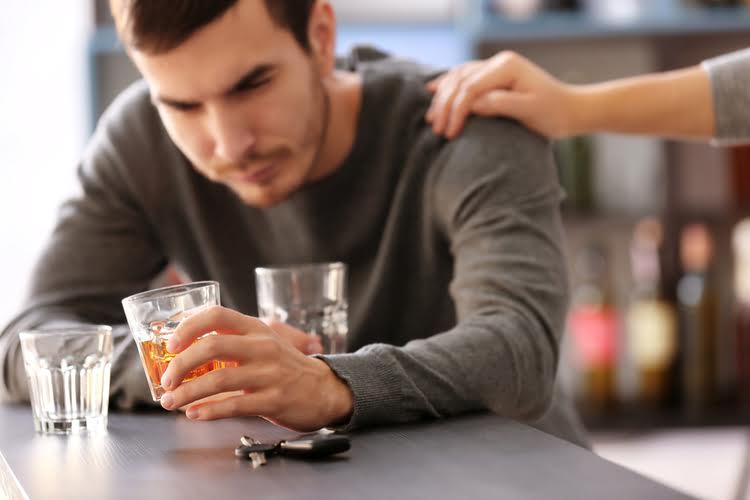Tell your family and friends that you’re aiming to stop drinking alcohol and explain why. This way, you can share your successes with them, and they’ll understand why you’ve started turning down drinks or trips to the pub. For other people, stopping drinking can be essential for medical reasons. Perhaps because of an alcohol-related medical condition like liver disease, or because they start taking medication that reacts badly with alcohol. If you repeatedly cannot cut back on your drinking or otherwise cannot get lower than a certain point in the taper, this might not be the right method for you.
Assessing Severity and Treatment Options
Quitting cold turkey is the preferred method of withdrawal, but only if done https://lublusebya.ru/raznoe/lublu-34861-pochemu-nelzja-est-ostyvshee-mjaso under medical supervision, where symptoms can be treated as they occur. Medical supervision plays a crucial role in safely weaning off alcohol. For individuals with a history of heavy alcohol use or those experiencing severe withdrawal symptoms, medical supervision is essential to ensure safety and provide necessary support. Healthcare professionals can assess the individual’s condition, provide guidance on the weaning-off process, and monitor for any complications that may arise.
Loop in a Therapist or Addiction Specialist

Make sure to share your successes with your loved ones and especially your sober support network. It is important that your recovery plan has a list of people who can support you as you wean off alcohol. You should include strategies to both reduce drinking and prevent relapse. Identify specific situations, emotions, environments, and people that motivate your drinking. https://www.mizote.info/the-overtime-for-exempt-employees/ Examples of triggers could include stress, social gatherings with alcohol, certain friends, and bars. You should not begin a tapering plan before talking to your doctor.

Ready to Get Help?
It’s a good idea to talk with a medical professional before you begin a taper. They can help you decide if it’s the safest way to start your recovery, and they can help you make a taper plan. Most people experience the most severe symptoms from about 36–72 hours after stopping drinking. By following these tips and recommendations, individuals can safely taper off alcohol and take positive steps towards a healthier and more fulfilling life. When it comes to weaning off alcohol safely, there are several tips and recommendations that can help individuals navigate this process successfully.
- Depending on how much alcohol you drink to start with, the amount of time an alcohol weaning schedule takes may vary.
- Tapering alcohol is beneficial because you can avoid alcohol withdrawal symptoms.
- Seeking help as early as possible during the withdrawal process is the best way to stay safe as you cleanse your body of alcohol.
- This can set you up for a safe and effective detox and put you in a good position to continue your recovery in rehab.
- Medical supervision plays a crucial role in safely weaning off alcohol.
- Your addicted brain may use this as an excuse to increase your dosage.
You can read all about mindful drinking in this article by a licensed therapist at Monument. Tapering off alcohol involves gradually reducing the amount of alcohol you drink. Besides its positive health benefits, it can help you quit drinking after weeks or months.
Find Professional Treatment
If you properly taper your alcohol use, you’re less likely to experience alcohol withdrawal symptoms. Gradually reducing the amount of alcohol you drink can help give your body the time it needs to adjust to the lack of alcohol. The kindling effect is an aspect of alcohol withdrawal that makes repeated attempts at withdrawal less safe. If you go through alcohol withdrawal multiple times, a kindling effect can occur.
People can partake in some natural remedies and activities to keep their minds occupied and help pass the time as withdrawal symptoms fade. Some of these remedies can be useful during withdrawal itself, and some are more helpful as you cope with cravings. The amount of time it takes to taper off of alcohol can vary greatly from person to person. Some people can taper quickly and quit alcohol completely, while others may take longer. But deciding to cut back on drinking is much more important than the length of http://www.redov.ru/kompyutery_i_internet/kompyuternye_sovety_sbornik_statei/p40.php your alcohol taper. When someone stops drinking, they must decide whether to quit “cold turkey” or taper their alcohol use.

There will be multiple points throughout the process where you will be tempted to drink. It’s helpful to think of your craving as a wave; Cravings build, peak, crash and dissipate. The point is that eventually, your craving will go away — the wave will crash.
